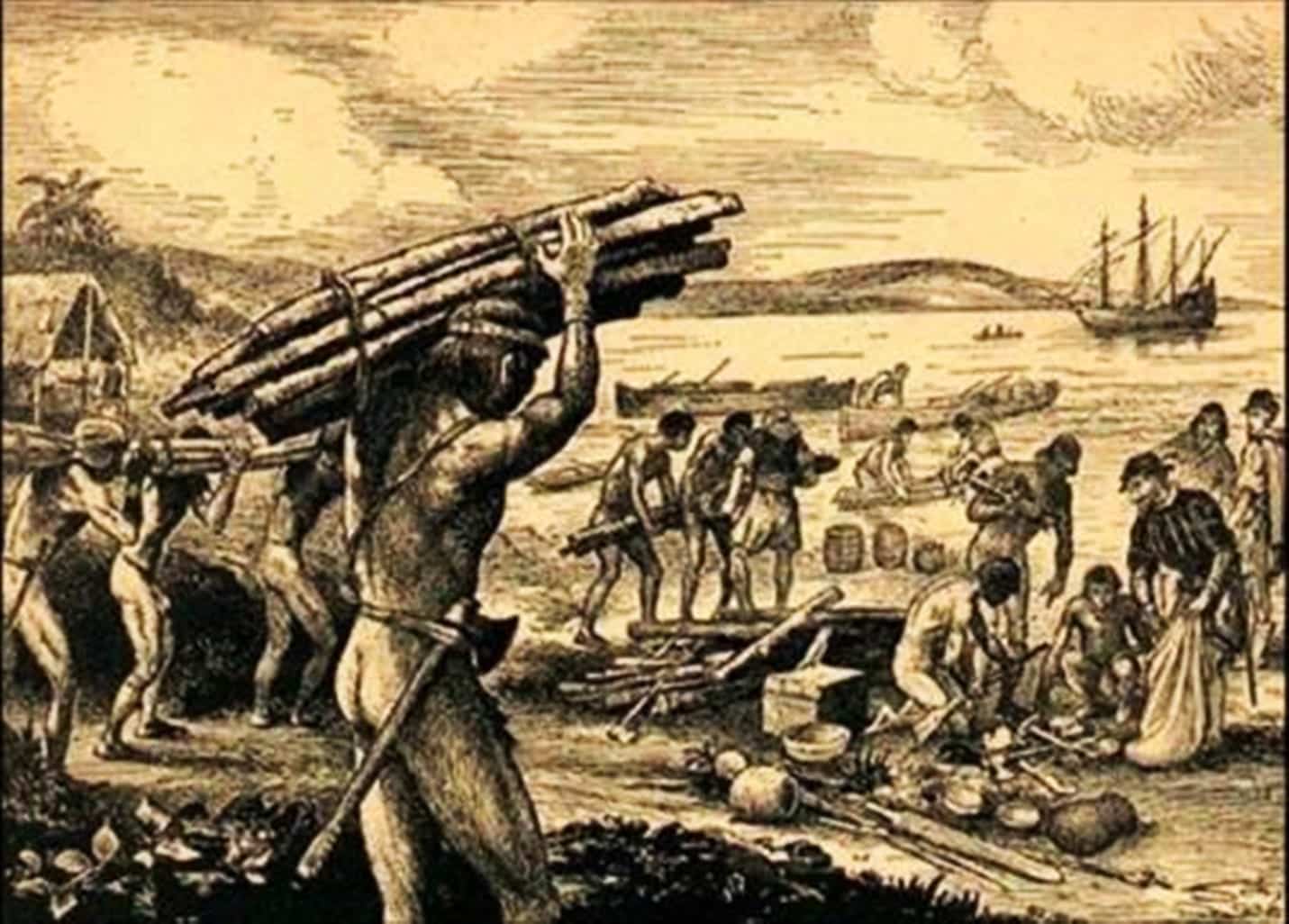The origin of the name “Brazil” is a complex story that dates back to the early encounters between Europeans and native peoples in the newly discovered lands. The word has its roots in the term “pau-brasil,” a valuable tree found in the region and exploited by the Portuguese. The exploitation of pau-brasil was so significant that it ended up giving its name to the country, which came to be called the “Land of Brazil.” This name was officially established with the arrival of the first Governor-General of Brazil, Tomé de Sousa, in 1549. The linguistic, cultural, and historical influence of these events continues to this day, making “Brazil” an iconic name that represents the nation and its rich heritage.

The name “Brazil” has its origins in the arrival of Pedro Álvares Cabral to the country in 1500 when Portuguese explorers initially mistook the new land for the Indies. Upon disembarking, they noticed a native tree with dark red wood, which resembled the red pigment called “brasil” or “pau-brasil” of the time. This term became associated with the new land, which came to be called the “Land of Brazil.” Over time, the name “Brazil” became firmly established as the name of the country.
While the most widely accepted explanation for the origin of the name “Brazil” is related to Brazilwood, other theories suggest different origins. One of them is the idea that the name could derive from “pau-de-brasa” due to the reddish glow of the wood. Another theory proposes a connection to an imaginary island called “Brazil” off the coast of Ireland, shrouded in mysteries and legends. According to this theory, this island was mentioned on medieval maps, but its actual existence was never confirmed. It was associated with a king named “Brasal” in Celtic traditions. Therefore, the origin of the name “Brazil” remains a debated subject with different theories and explanations.
Although the name “Brazil” was initially linked to Brazilwood, it came to be used to refer to the entire geographical region as Portuguese colonization expanded. Over time, the term “Brazil” was adopted to represent the vast territory as colonization progressed. This association was solidified with Brazil’s independence in 1822 when the country officially adopted the name we know today.
Reference: BBC Brasil – Brasil vem de ‘vermelho como brasa’? Mapa global identifica origens dos nomes dos países. Brazil, May 27, 2018. Site: www.bbc.com. Available in: Brasil vem de ‘vermelho como brasa’? Mapa global identifica origens dos nomes dos países – BBC News Brasil. Accessed on: September 23, 2023.
Brasil Escola – Origem do nome Brasil. Brazil, s.d. Site: brasilescola.uol.com.br. Available in: Origem do nome Brasil. Os nomes do Brasil – Brasil Escola (uol.com.br). Accessed on: September 23, 2023.

Matheus Araújo
Matheus Araújo is the founder and editor of Brazilian History. Born in Rio de Janeiro and holding a degree in Advertising and Marketing, his passion for history led him to enroll at the Federal University of the State of Rio de Janeiro, where he is currently pursuing a degree in History Education.
